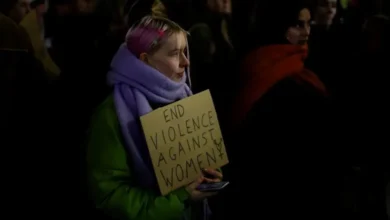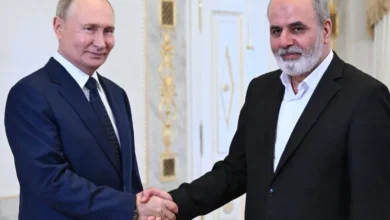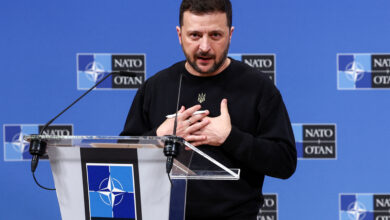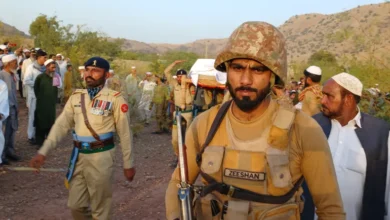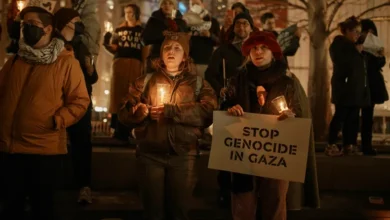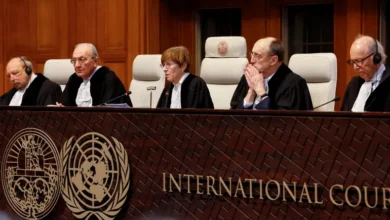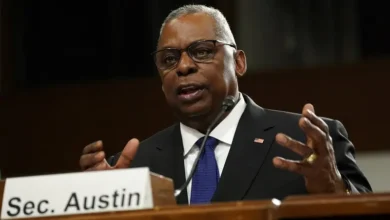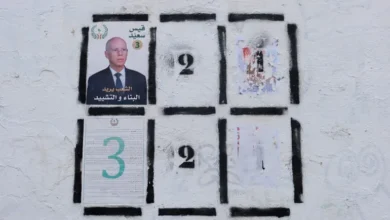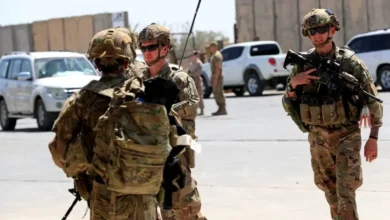‘Missing in action’: Where has Palestinian Authority been since October 7?
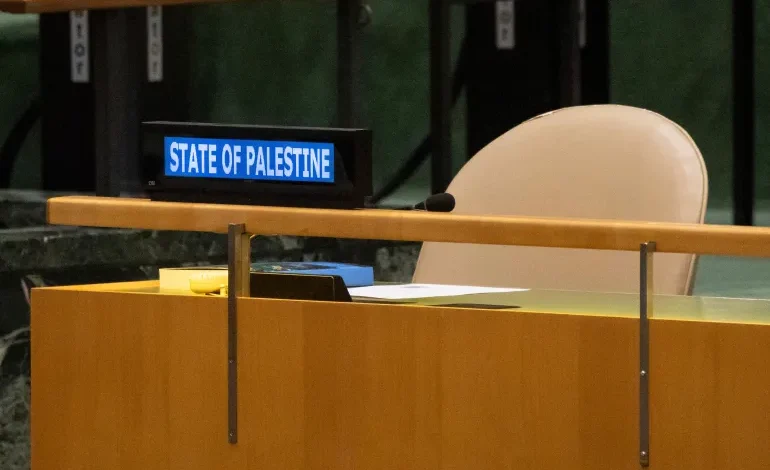
Palestinian Authority (PA) President Mahmoud Abbas was in his element when, on stage at the UN General Assembly (UNGA) last month, he thanked 124 countries for voting yes on the first-ever resolution introduced by Palestine at the UNGA.
He was back at the scene of one of the PA’s most significant political achievements since its establishment under the Oslo Accords in the mid-1990s – Palestine’s successful 2012 bid for non-member observer status.
Abbas, an architect of the peace process that created the PA as a government-in-waiting until the establishment of a Palestinian state, succeeded Yasser Arafat at the helm of the PA after his death. Since then, the PA has made international recognition and diplomacy a priority, with constant calls for UN action and a years-long campaign for the International Criminal Court to investigate crimes committed in Palestine.
At the UNGA, Abbas condemned Israel’s yearlong war on Gaza, ongoing incursions and settlement expansion in the occupied West Bank.
While the Palestinian Authority “paid lip service” to the tragedy Palestinians were facing, it also continued to carry out its role as “subcontractor” for the Israeli occupation by suppressing protests and resistance in the West Bank, Yara Hawari, a co-director of the Palestinian think tank Al Shabaka, told Al Jazeera.
“Really since the beginning of the genocide in Gaza, the Palestinian Authority has been absent from the scene, making a few comments here or there, or statements that really do nothing”, she said. “But there have been no concrete actions to support Palestinians in Gaza”.
Sam Bahour, a Palestinian American businessman based in the West Bank, agreed, telling Al Jazeera that most Palestinians feel the Palestinian Authority, and Palestinian political leadership more broadly, have been largely “missing in action”.
“October 7 did not change the Palestinian leadership’s mode of operation; it merely intensified it”, he added. “Their mode was, and remains to be absent – absent on the ground in Palestine, absent politically, and absent from Palestinian daily life”.
“Where they are present is in the halls of the international venues, which has a constructive role, but one, as the past year taught everyone, that is not enough to end this Israeli-made nightmare of decades”.
Faded into the background
For years before October 7, the Palestinian Authority has seen its legitimacy tumble among Palestinians in both the West Bank and Gaza as it failed to protect them from escalating military and settler violence.
The Palestinian Authority security forces’ role in the suppression of Palestinian resistance and the authority’s “security coordination” with Israel – a deeply controversial, US-managed arrangement that sees PA security forces work together with Israel – have also long been a factor in Palestinians’ anger.
Disillusionment has only deepened in recent years as the PA has carried out a series of violent crackdowns and detentions, targeting not only those seen as threats to Israel’s security but also critics of the PA itself. In some cases, detainees have been subjected to abuse
Some 89 percent of Palestinians want the 88-year-old Abbas to resign, according to a poll published in June by the Palestinian Center for Policy and Survey Research. The PA itself is not faring much better, with some 62 percent of Palestinians supporting its dissolution.
It doesn’t help the PA’s legitimacy that there have been no major elections in nearly two decades – meaning that an entire generation of Palestinians have never voted. Abbas called off a presidential election scheduled for 2021 after Israel rejected the inclusion of Palestinians in occupied East Jerusalem in the vote.
While the PA has long been perceived to be remote and out of touch, Palestinians’ frustration with their leadership has only intensified, especially in the past year.
“We are seeing an unprecedented moment of crisis in the history of the Palestinian struggle, and we are not seeing a commensurate response from the Palestinian Authority; they’ve largely just disappeared into the background”, Yousef Munayyer, head of the Palestine/Israel Program and senior fellow at the Arab Center in Washington DC, told Al Jazeera.
“That contrast between the degree of urgency and need for leadership and the disappearance of that leadership at the same time has never been so stark”.
Shut out from negotiations for a ceasefire in Gaza, the PA has consistently denounced the ongoing onslaught there but has proven unable to play a role toward its end. Meanwhile, in recent weeks, the deadliest Israeli raids on occupied West Bank cities in 20 years have underscored the PA’s impotence even in the areas it supposedly controls.
At least 752 people have been killed in the occupied West Bank since October 7.
No political programme
Internally, Palestinian leadership has been divided on the response to Israel’s war on Gaza and escalation in the West Bank, with some criticising Abbas’s response as too timid and others debating whether the authority should play a greater role in resisting Israel.
Fatah, the party at the helm of the PA, along with Hamas and a dozen other Palestinian political factions, have resurfaced long-standing efforts to unite, signing an agreement in July in China, laying the groundwork for an “interim national reconciliation government” to rule a post-war Gaza, according to the Chinese Foreign Ministry.
But the agreement was one of two dozen failed attempts to reconcile Hamas and Fatah.
Hamas won the last legislative elections in 2006, largely due to Palestinians’ frustrations with Fatah. However, Israel and the US flatly rejected the election results. In 2007, after several failed attempts to form a unity government, a US-backed coup – carried out in conjunction with Fatah – unseated Hamas.
